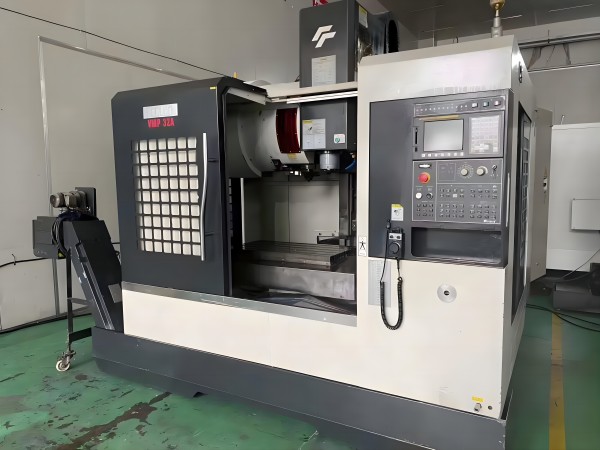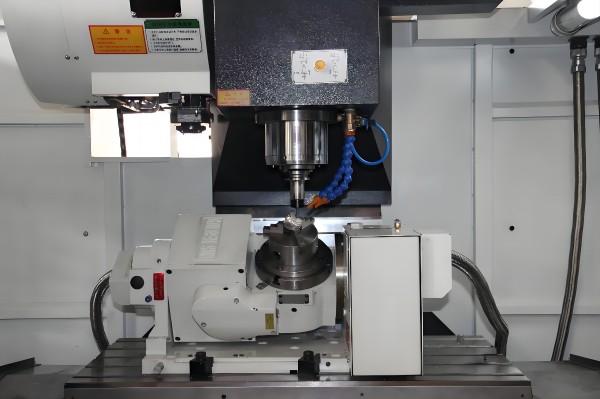CNC Machining Centers Fast Guide
CNC Machining Centers: Your Guide to Precision Manufacturing
CNC Machining Centers are the powerhouses of modern manufacturing, delivering the precision and automation that streamline production lines. These centers use computer programming to automate a wide range of tasks, from simple to the most complex, which is a game-changer for efficiency and accuracy.
What Are CNC Machining Centers?

CNC stands for Computer Numerical Control, and these machining centers are essentially highly sophisticated machines that take manufacturing to the next level. They're capable of handling multiple operations—like milling, drilling, and tapping—in a single setup, which reduces the need for re-fixturing and boosts productivity. The real magic happens when these machines achieve accuracies down to the micrometer level, making them perfect for complex parts that require ultra-precision.
Types of CNC Machining Centers and Their Uses
CNC Machining Centers come in a variety of types, each tailored to specific manufacturing needs:
Vertical Machining Centers: These compact machines are a favorite for their space-saving design and ease of use. They're ideal for small to medium-sized workpieces, like those found in the electronics and communication equipment industries.
Horizontal Machining Centers: With their superior rigidity and stability, these centers are perfect for large-scale workpieces. They're a mainstay in industries that work with heavy components, like the automotive and heavy machinery sectors.
Gantry Machining Centers: When it comes to super-sized components, gantry machining centers are in a league of their own. They offer expansive workspaces and the highest precision, making them a top choice for shipbuilding and large-scale mechanical assembly.
Key Components and How They Work
The success of a CNC Machining Center lies in the harmony of its key components:
CNC System: Think of this as the brain of the operation. It interprets and executes the complex instructions that drive the machine's precision movements.
Spindle System: This is the heart of the machine. It provides the high-speed rotation necessary for cutting, with its precision and stability being crucial to the quality of the finished product.
Feed System: This system controls the intricate dance between the tool and the workpiece, ensuring that every move is precise and deliberate.
Worktable: As the foundation, the worktable secures the workpiece in place, ensuring it's accurately positioned for the machining process.
Auxiliary Devices: These include cooling systems and chip removal mechanisms that keep the process running smoothly and efficiently.
The CNC system is the commander, coordinating the spindle, feed, and worktable to execute precise cuts and machining operations on the workpiece. It's a well-choreographed ballet of metal and machinery.
Real-World Applications Across Industries
CNC Machining Centers are workhorses in a variety of sectors:
Aerospace: These centers are crucial for manufacturing complex parts with ultra-high precision, like aircraft engine blades and structural components.
Automotive: They play a pivotal role in producing key car components like engine blocks and crankshafts, which are vital to a vehicle's performance and lifespan.
Mold Making: The precision of these centers is unmatched in creating molds for plastic injection and other manufacturing processes, where accuracy is paramount.
Medical Devices: In the medical field, CNC Machining Centers manufacture precision instruments and devices that can make all the difference in patient outcomes.
Technical Edge and Market Trends
CNC Machining Centers offer several technical advantages that are shaping the future of manufacturing:
Precision and Efficiency: With the latest in CNC and servo technology, these centers are setting new standards for what's possible in precision machining.
Automation and Intelligence: Today's machining centers are integrating more automation and intelligent systems, allowing for round-the-clock operation with minimal human oversight.
Flexibility and Adaptability: As manufacturing becomes more personalized and custom-made, the ability of these centers to adapt quickly to new machining requirements is more important than ever.

Pushing the Boundaries with Innovative Applications
CNC Machining Centers are at the forefront of manufacturing innovation:
Complex Part Machining: With capabilities e.g. 5-axis linkage (connection), these centers can machine complex geometries in a single setup, saving time and increasing precision.
Precision Mold Manufacturing: Integrated CAD/CAM systems allow for rapid prototyping and precision machining of molds, streamlining the production process.
Irregular Part Machining: The flexibility of these centers shines when machining parts with complex or irregular shapes, thanks to advanced tool path programming and adaptive machining technologies.
High-Speed Machining: This technology is revolutionizing the machining of molds and aerospace parts, with its ability to remove material quickly and accurately, while maintaining surface integrity.
The Distinction Between CNC Milling Machines and Machining Centers
While they share some similarities, CNC Milling Machines and Machining Centers have distinct roles:
CNC Milling Machines: Specialize in milling operations, ideal for two-dimensional or simple three-dimensional surface machining, and are generally more cost-effective.
Machining Centers: Offer a broader range of functions, including milling, drilling, and tapping, with automatic tool changers that make them perfect for complex part production.
Choosing the right machine depends on your specific needs, the characteristics of the workpieces, production volume, and budget. For high-volume, precision, and multi-operational requirements, a Machining Center is often the best fit. For smaller runs, simpler parts, or where cost is a primary concern, a CNC Milling Machine may be the more economical choice.
Conclusion
CNC machining centers are a cornerstone of modern manufacturing, providing the precision, efficiency, and adaptability needed to meet the demands of industries like aerospace, automotive, mold making, and medical devices. As technology advances, the role of CNC machining centers will continue to expand, driving innovation and enhancing production capabilities across the board.
For procurement managers and industrial designers seeking to leverage the full potential of CNC technology, understanding the nuances between different CNC machines and identifying the right manufacturing partners is key. With the right CNC machining center and a reliable manufacturing partner in China, you can unlock new levels of productivity and quality in your production processes.
Find the right Chinese factory for your CNC machining needs:
Evaluate the precision and efficiency of the machining center.
Consider the automation capabilities and intelligent features.
Assess the flexibility and adaptability of the machine to suit your specific part requirements.
Look for a partner with a proven track record in your industry.
By doing so, you can ensure that your manufacturing process is not just efficient but also future-proof, ready to take on the challenges of tomorrow's production landscape.
















